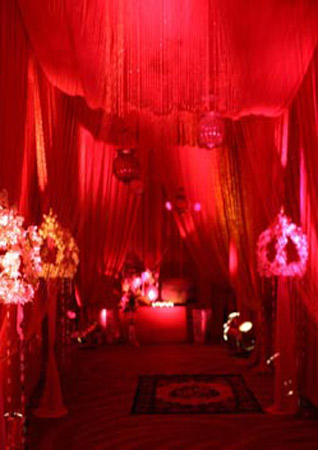Columnists
Songs of Blood:
Khoon ke Sohele
SARBPREET SINGH
At the head of a wedding party of sin
Did the groom rode in from Kabul
As his bride price he demands the land
What kind of wedding is this ?
Where shame and righteousness are absent
Where Satan himself reads the vows,
Usually the domain of Brahmins or Qazis
Muslim women turn to the Qur’an for solace
And in their despair cry out to Allah
The fate of Hindu women, highborn or low is the same
Nanak sings songs of blood
Rather than the joyous songs of union
And instead of an auspicious shower of saffron
Blood pours down upon this macabre wedding
[Guru Nanak]
The year is 1521. Guru Nanak is in the town of Eminabad, then called Sayyidpur, to meet his beloved Sikh, Bhai Lalo. The town has been attacked by the hordes of the invader Babur, whose men have unleashed terror upon the city. In this shabad, Guru Nanak uses the metaphor of a macabre wedding to describe the suffering of the citizens of Sayyidpur, Hindus and Muslims alike. The satanic wedding is a thinly veiled reference to the wanton rape of the women of Sayyidpur, irrespective of their creed or their status.
Four hundred and sixty-three years later, another gruesome wedding party takes to the streets. This time in the city that Babur and his descendants once ruled, the groom is not a marauding chieftain from Central Asia who established the House of Zafar, but a descendant of the Nehru clan. His groomsmen are the luminaries of the Congress Party which has ruled India for much of the forty-seven years since its creation after the end of the British Raj. The object of their bloodlust are the Sikhs of Delhi, who must be ‘taught’ a lesson.
Thirty years after 1984, we Sikhs are asked to forget. The point of remembering 1984 is questioned. Our motives are suspected. We are called impolite for raking up an inconvenient chapter from the recent history of India, which wishes to be seen as modern. A hub of technology. A market with an inexhaustible appetite for goods and services. A global power. The ‘largest democracy in the world’! Wouldn’t it be so much better if we just ‘moved on’?
Only thirty years have passed since the 1984 Pogrom. Three hundred years have passed since Zakria Khan, Mir Mannu, Ahmed Shah Abdali and their ilk cast their dark shadows on the land of the Sikhs. Have we forgotten them? Then how can we
forget Rajiv Gandhi and H.K.L. Bhagat and Jagdish Tytler and Dharm Das Shastri and Lalit Maken and Sajjan Kumar and Kamal Nath and the goons who did their dirty work for them.
Every time Sikhs rise in prayer, whether it be a joyous occasion or solemn, we pay homage to the innocent Sikhs who were butchered by these criminals. Why then will we ever stop paying homage to the innocent victims of 1984?
We remember not because we hate but because we love. We remember not because we seek revenge but because we seek justice.
If there is anything we believe in, we believe that eventually, in His court, justice will be served. Let there be no doubt.
October 31, 2013
Conversation about this article
1: Harinder (Punjab), October 31, 2013, 11:39 AM.
Sarbpreet ji: "We remember not because we hate but because we love. We remember not because we seek revenge but because we seek justice." Beautiful lines!
2: Gurjender Singh (Maryland, USA), October 31, 2013, 12:03 PM.
We can expect justice when we ourselves as a community start giving the 1984 issue top priority.
3: Sarvjit Singh (Massachusetts, USA), October 31, 2013, 4:15 PM.
Sarbpreet ji: You also sing this shabad very beautifully, followed by oratory. I have never seen a perfect blend of English and Punjabi oratorial skills such as yours, in any person. May Waheguru give you chardi kala! These pogroms of 1984 in Delhi and across India that kept on going in the 1980s won't fade away or heal unless the people and government make some serious effort in providing justice. Over 10-15,000 people killed and not even a single person found guilty or punished ... How is that possible? In my case, I still shudder to think of what happened to me in Delhi and Bidar in 1988 ... I have scars on my arms and legs. I distinctly remember little kids wearing school uniforms and singing 'Ek, do, teen, chaar ... maar do Sardar!'
4: H. Singh (Boston, Massachusetts, USA), October 31, 2013, 11:24 PM.
There is a woman who was once abducted by a demon king. But he treated her with utmost respect and did not violate her honor. Eventually, the demon king was defeated. Although, the woman was brought home safe after much exertion, the Hindus began burning an effigy of the demon king and continue to do so even after two thousand years. If they won't stop participating in this senseless ritual year after year, isn't it hypocritical of some of them to tell the Sikhs to forget an egregious pogrom that happened just three decades ago?
5: Harpreet Makkar (England), November 07, 2013, 6:12 PM.
Sikhism is the greatest religion of the world. We Sikhs have always lived for others, serve millions of people in langar regardless of caste and religion, sacrificed our lives for the sake of Hindus and Muslims when needed, and still we are made to suffer. Jallianwala Bagh massacre, 1947, 1984 pogroms, etc., are the rewards we get for our service. It's time we unite and raise our voice. We should reach out to the UN to enforce our rights and get proper closure on 1984 ... through justice.



